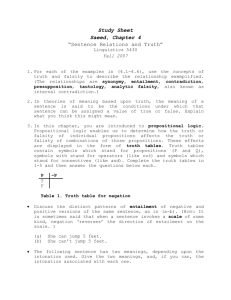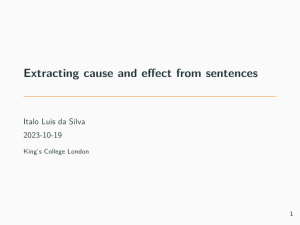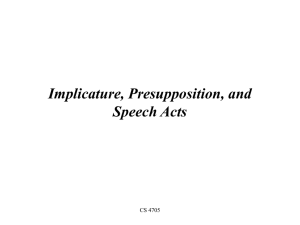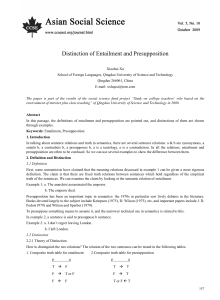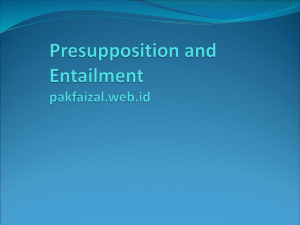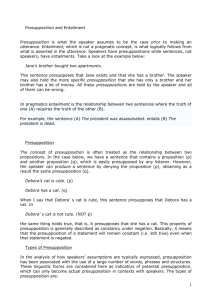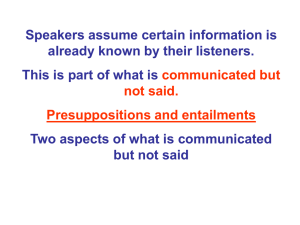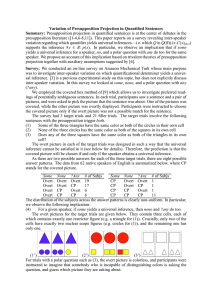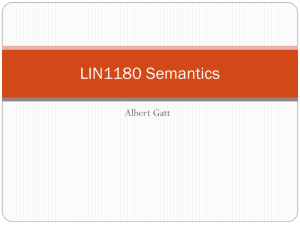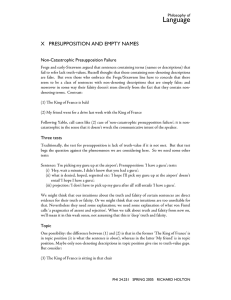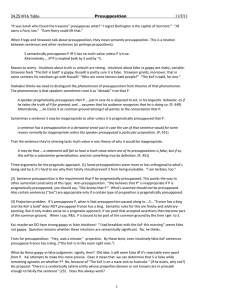Presupposition, Implication, Inference, Entailment Definitions from
advertisement
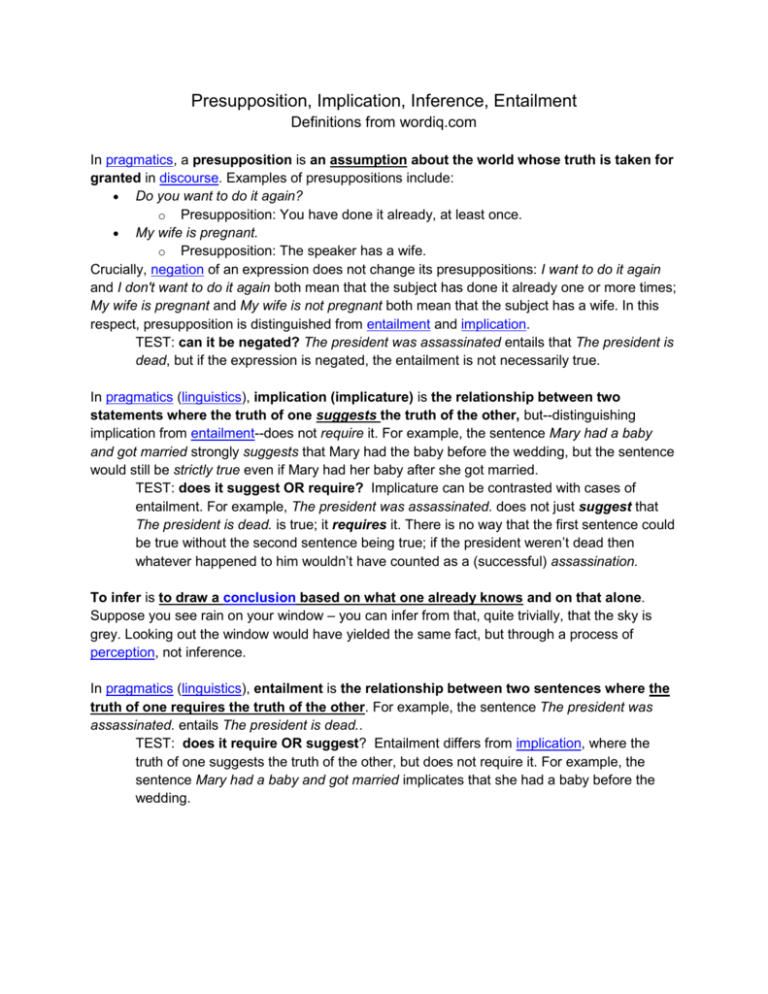
Presupposition, Implication, Inference, Entailment Definitions from wordiq.com In pragmatics, a presupposition is an assumption about the world whose truth is taken for granted in discourse. Examples of presuppositions include: Do you want to do it again? o Presupposition: You have done it already, at least once. My wife is pregnant. o Presupposition: The speaker has a wife. Crucially, negation of an expression does not change its presuppositions: I want to do it again and I don't want to do it again both mean that the subject has done it already one or more times; My wife is pregnant and My wife is not pregnant both mean that the subject has a wife. In this respect, presupposition is distinguished from entailment and implication. TEST: can it be negated? The president was assassinated entails that The president is dead, but if the expression is negated, the entailment is not necessarily true. In pragmatics (linguistics), implication (implicature) is the relationship between two statements where the truth of one suggests the truth of the other, but--distinguishing implication from entailment--does not require it. For example, the sentence Mary had a baby and got married strongly suggests that Mary had the baby before the wedding, but the sentence would still be strictly true even if Mary had her baby after she got married. TEST: does it suggest OR require? Implicature can be contrasted with cases of entailment. For example, The president was assassinated. does not just suggest that The president is dead. is true; it requires it. There is no way that the first sentence could be true without the second sentence being true; if the president weren’t dead then whatever happened to him wouldn’t have counted as a (successful) assassination. To infer is to draw a conclusion based on what one already knows and on that alone. Suppose you see rain on your window – you can infer from that, quite trivially, that the sky is grey. Looking out the window would have yielded the same fact, but through a process of perception, not inference. In pragmatics (linguistics), entailment is the relationship between two sentences where the truth of one requires the truth of the other. For example, the sentence The president was assassinated. entails The president is dead.. TEST: does it require OR suggest? Entailment differs from implication, where the truth of one suggests the truth of the other, but does not require it. For example, the sentence Mary had a baby and got married implicates that she had a baby before the wedding. Examples: 1. Jane lost her job. She went back to school. 2. We made the bread. It was delicious. 3. The dogs are shivering. 4. John’s driving to Hell and back today. 5. Anne’s gift was great – I love chocolates. 6. There are 28 days in March. 1. Jane lost her job and went back to school. implicature – suggests 2. We made the bread and it was delicious. entailment – A must come before B 3. The dogs are shivering. inference – it’s cold 4. John’s driving to Hell and back today. presupposition – Hell is a city 5. Anne’s gift was great – I hate chocolates. implicature – Anne got chocolates 6. There are 28 days in March. inference – only 28 days in march.
